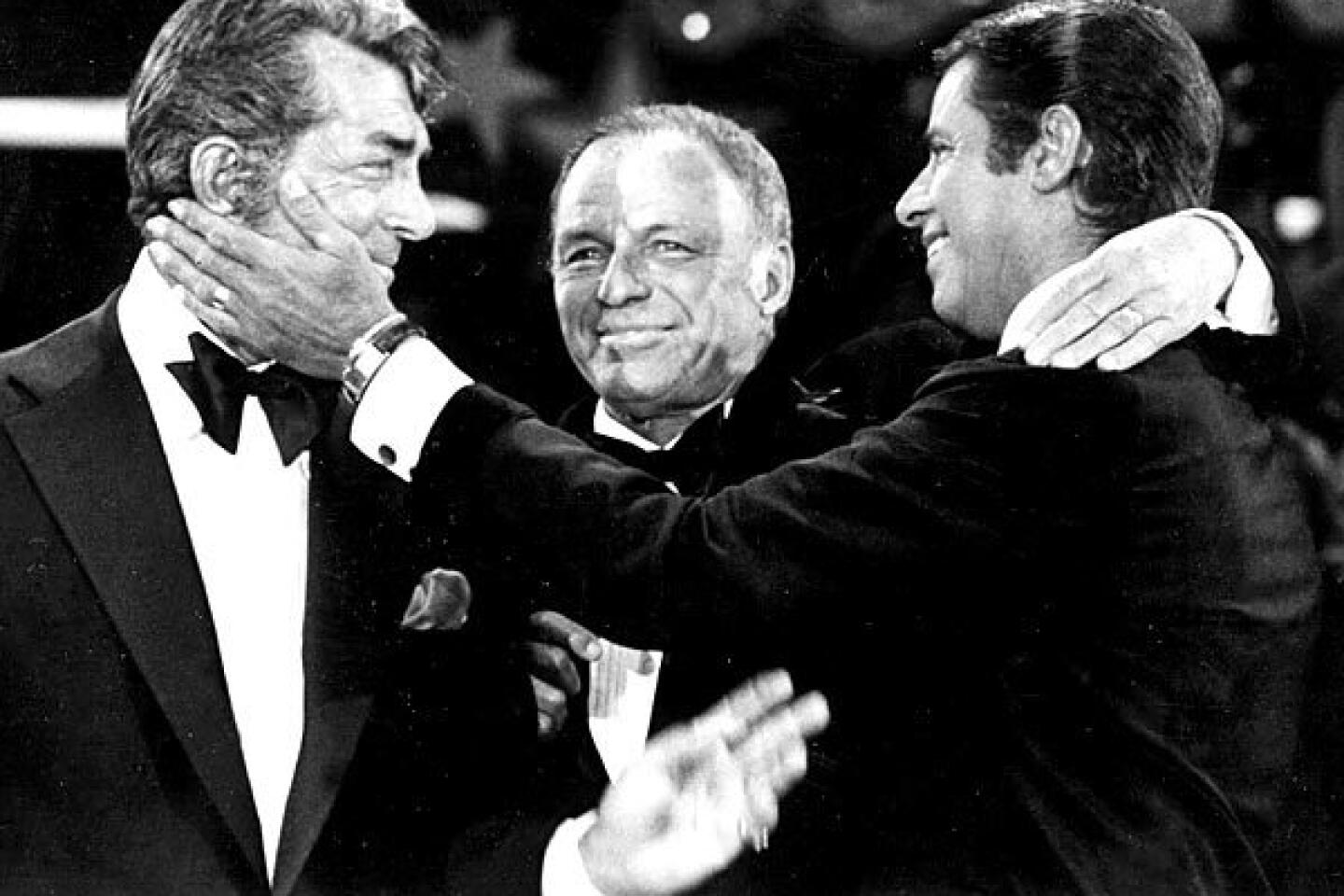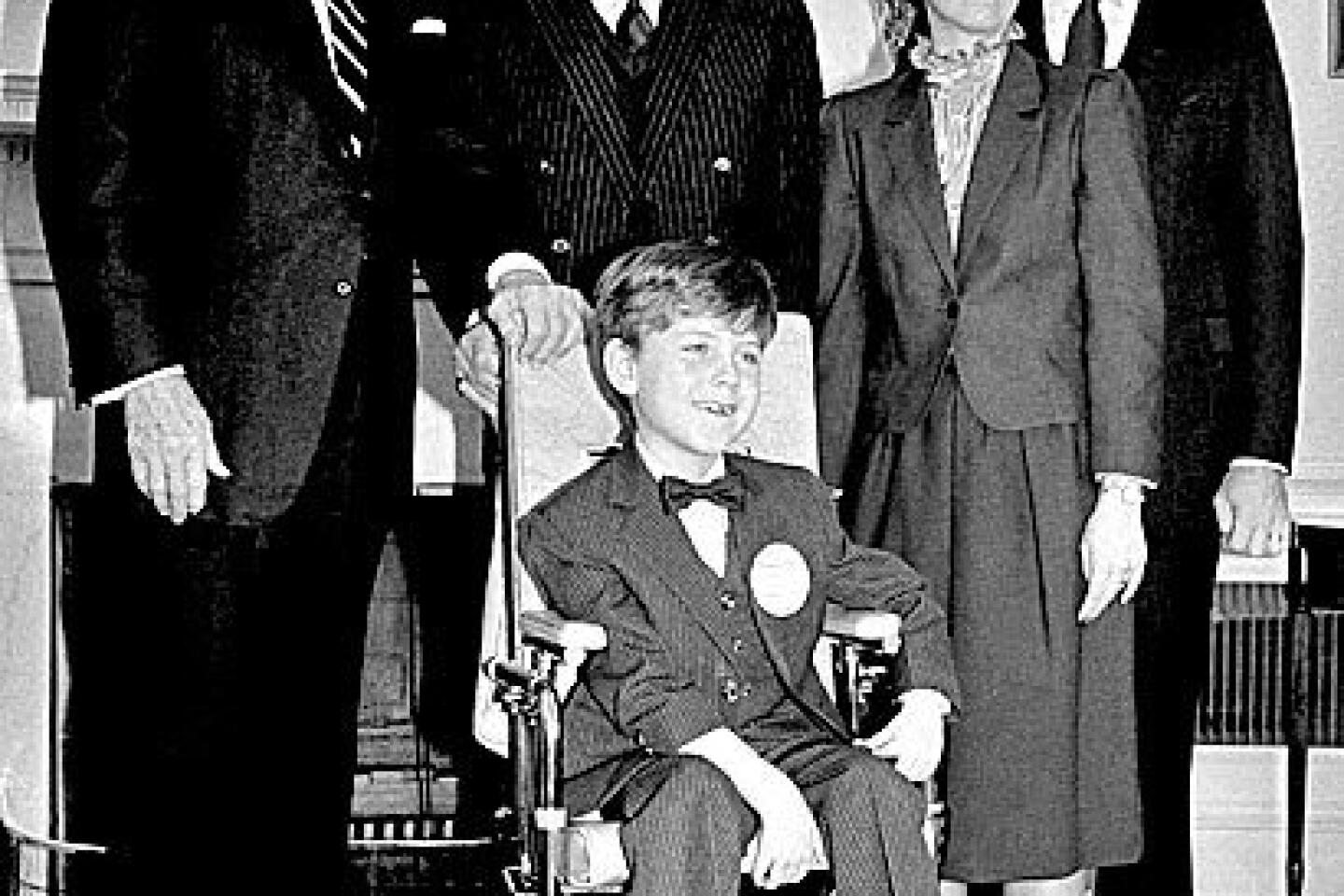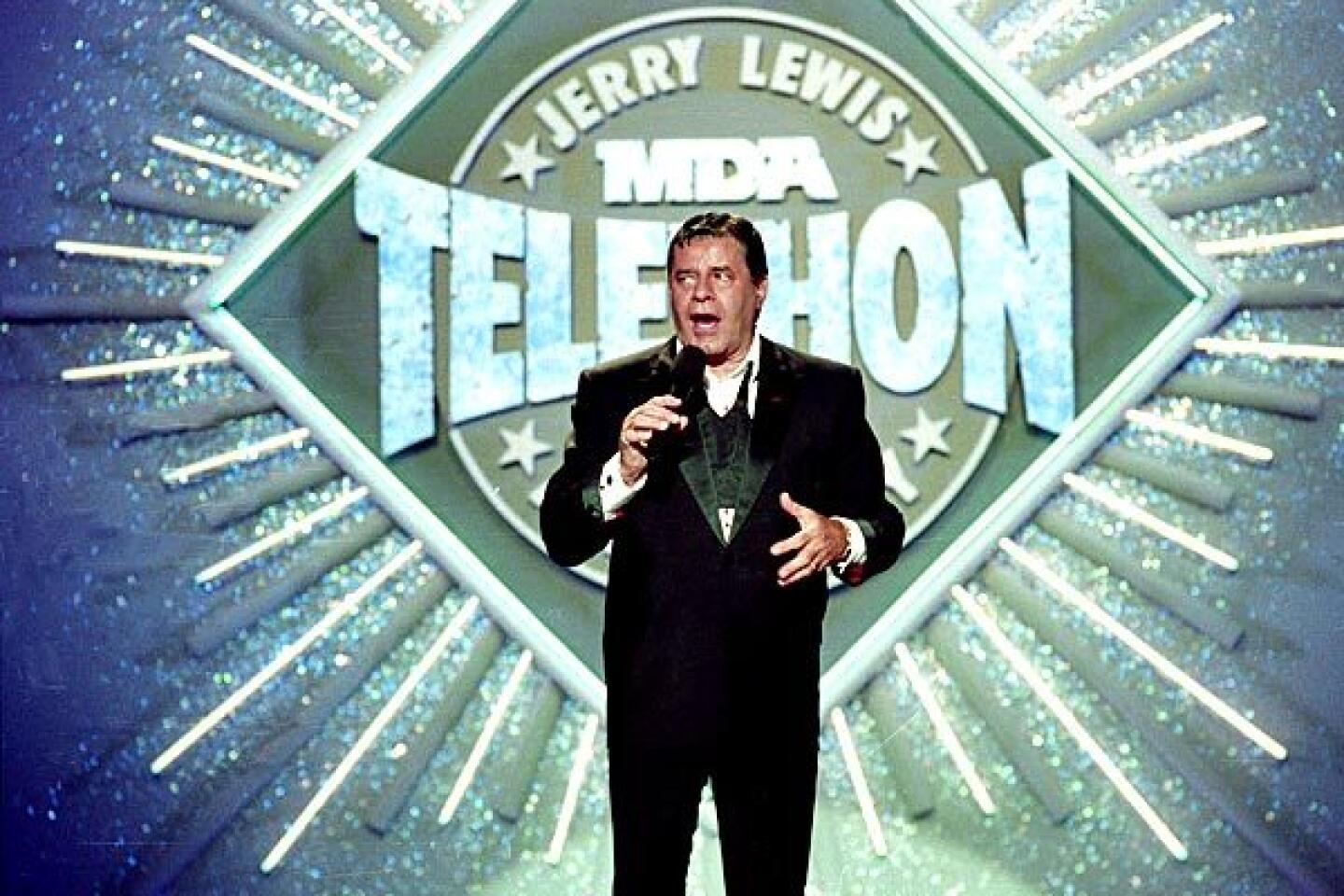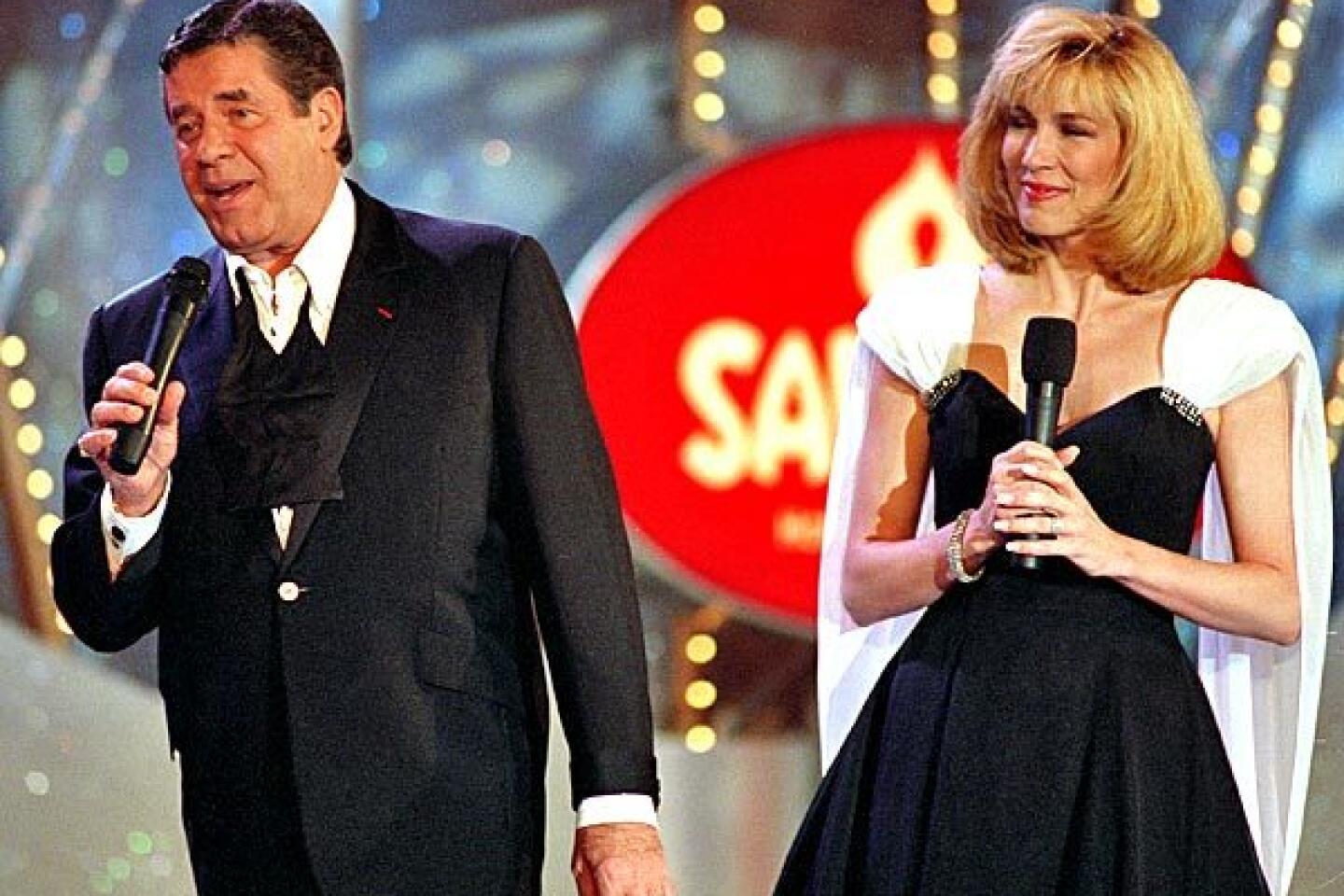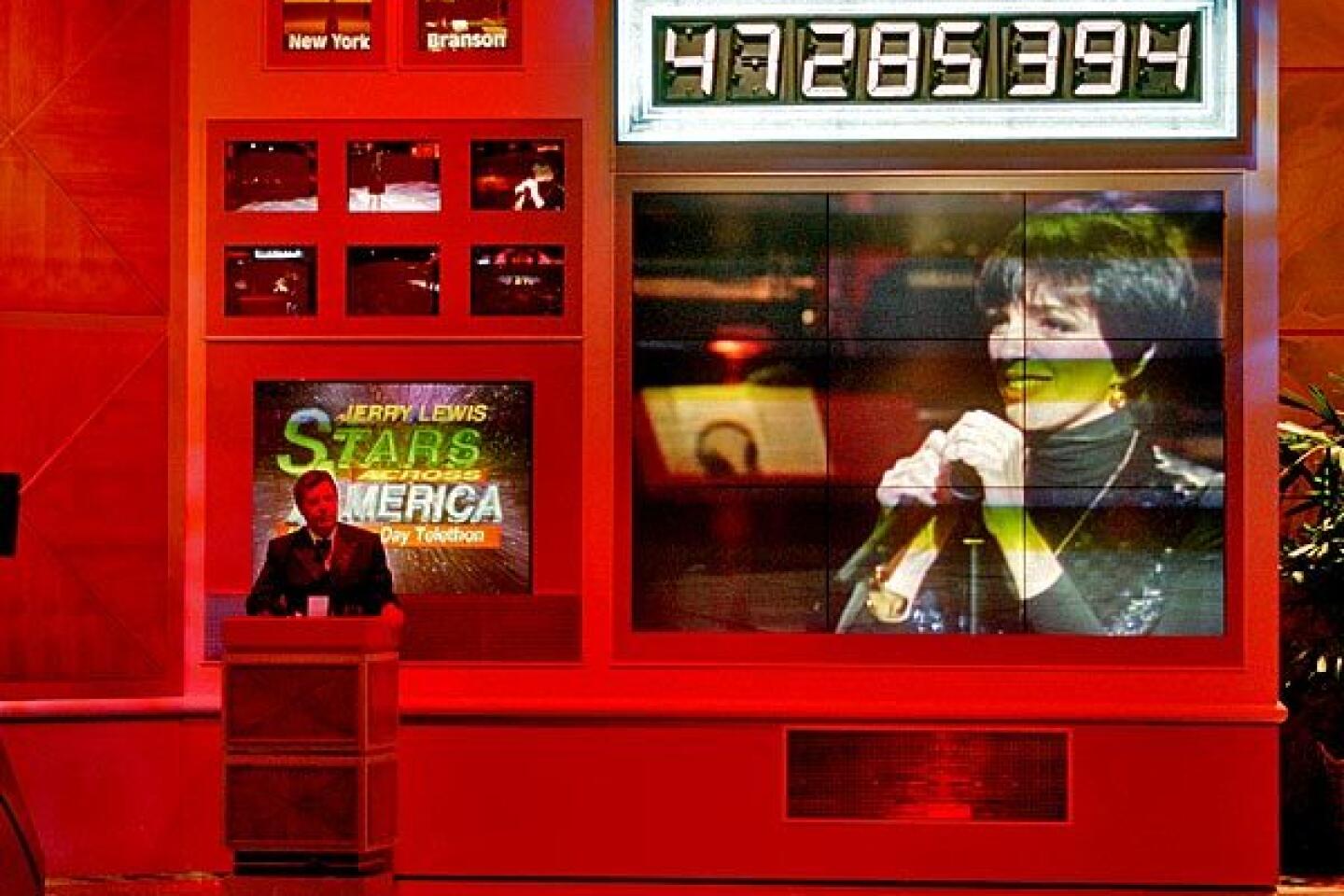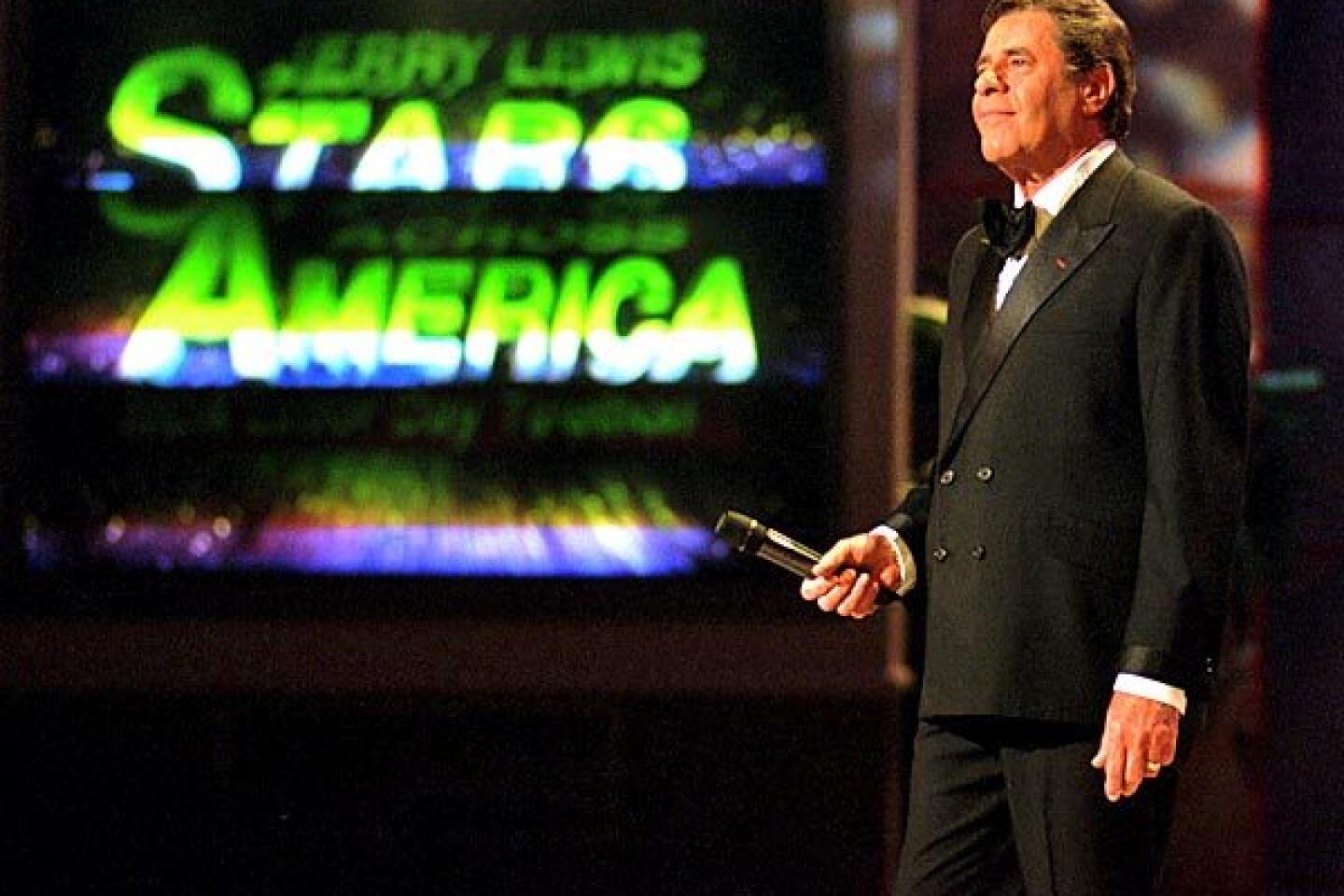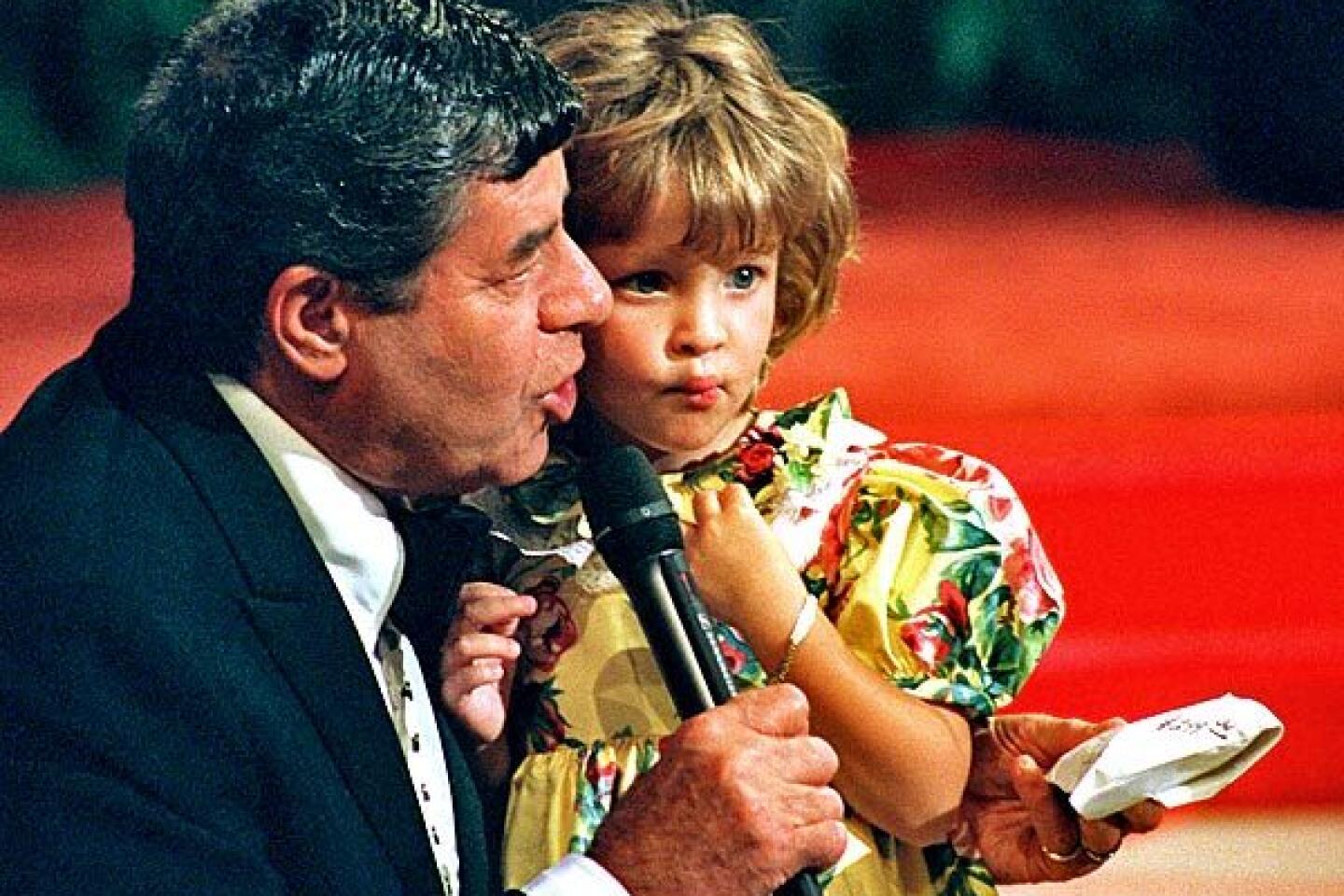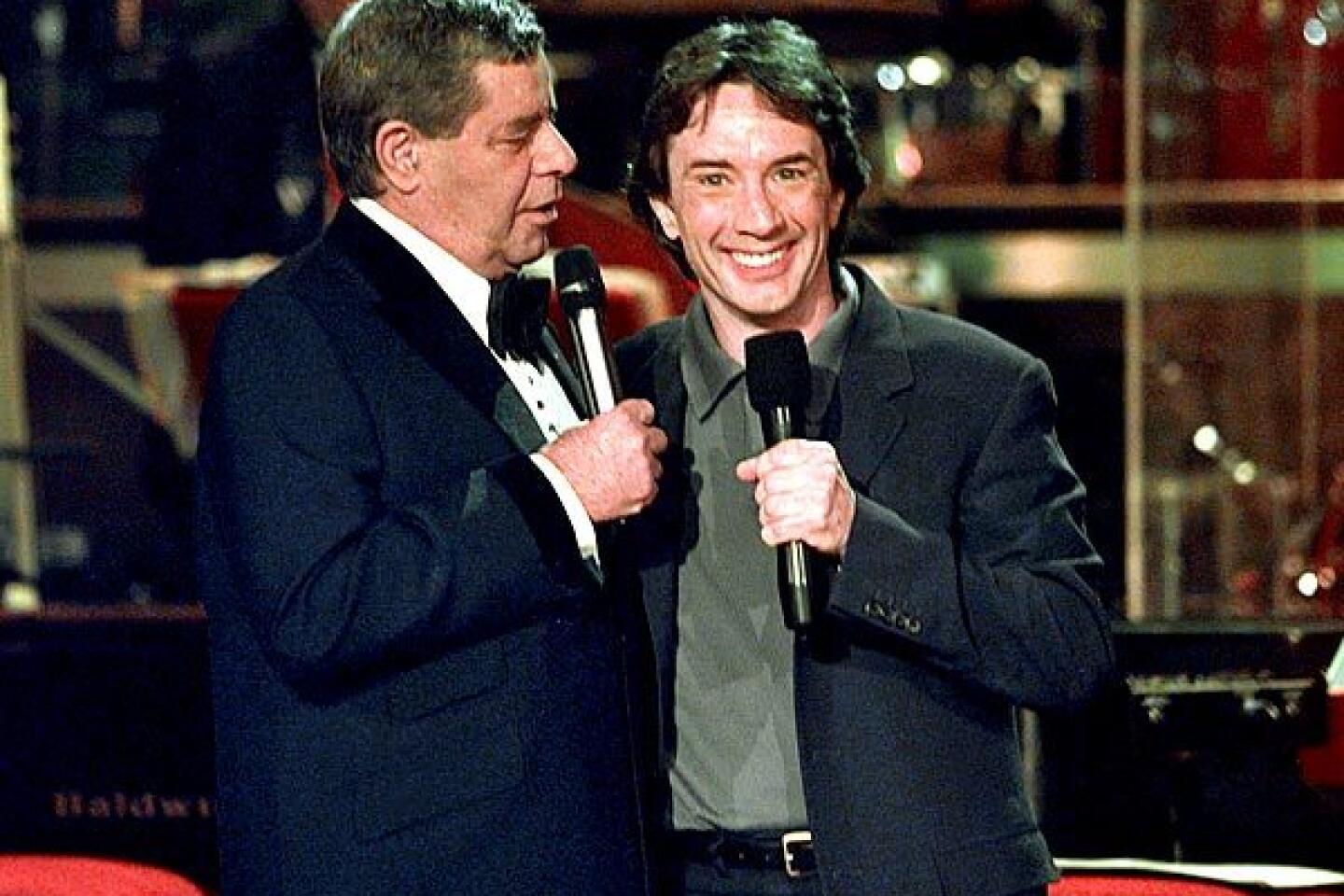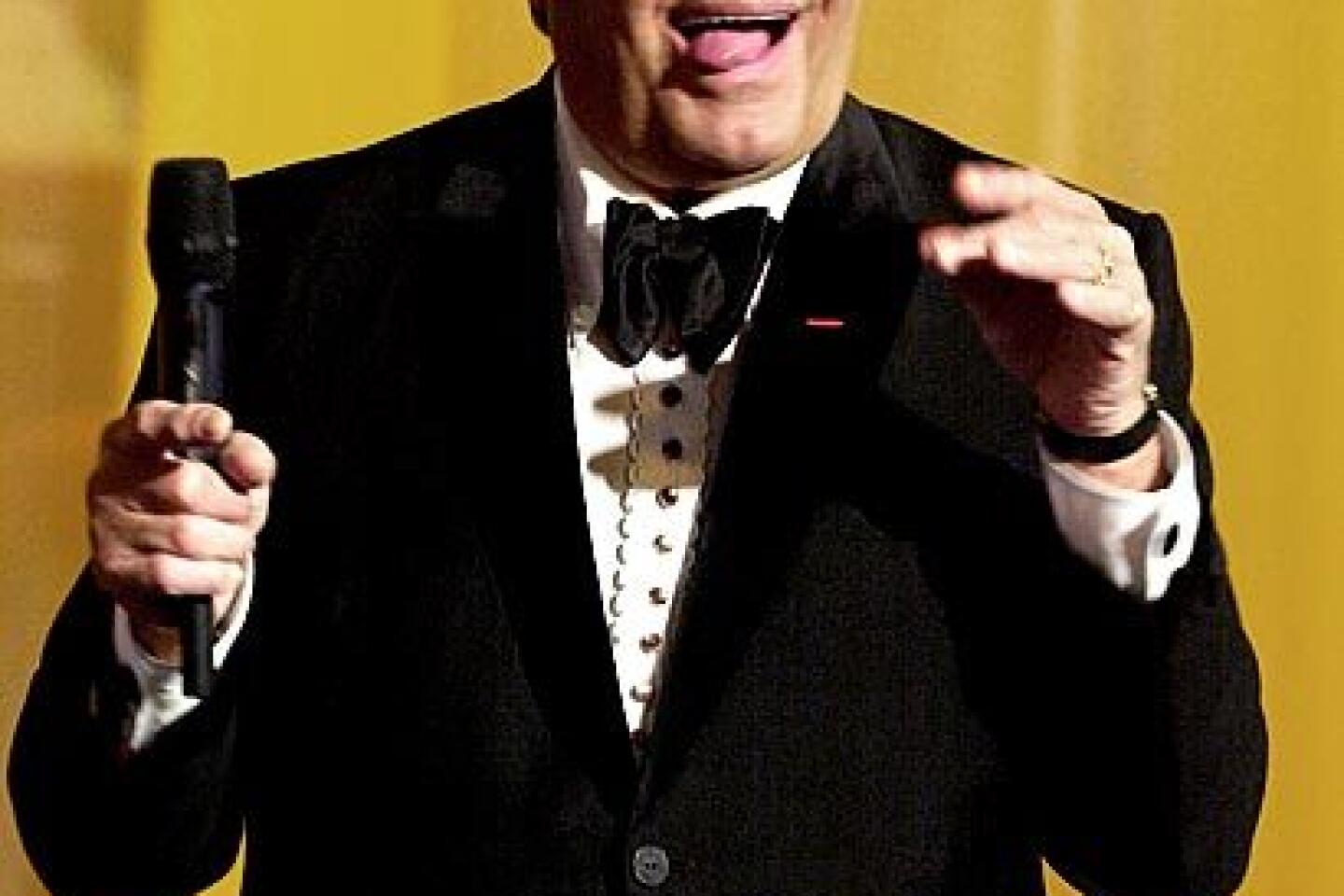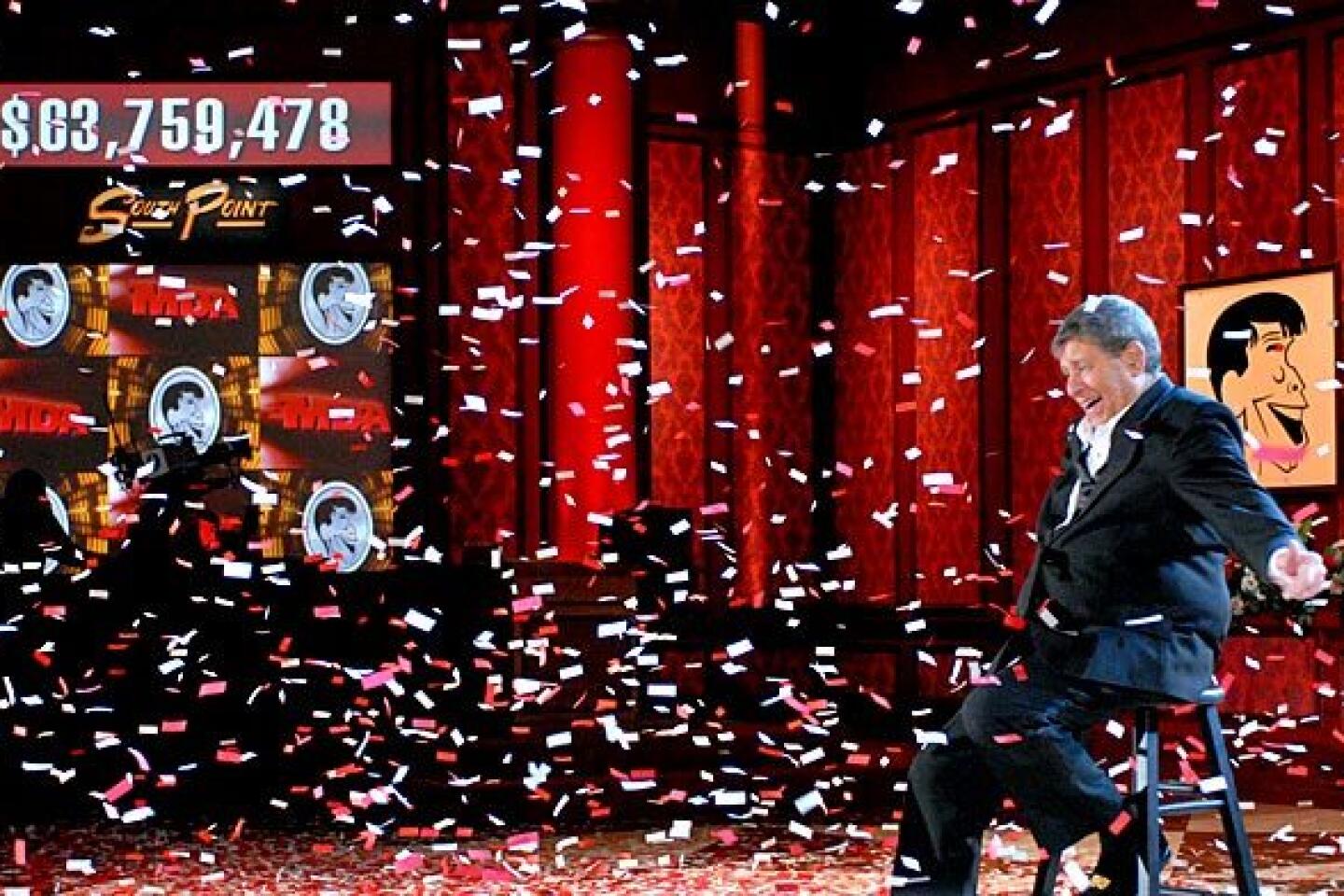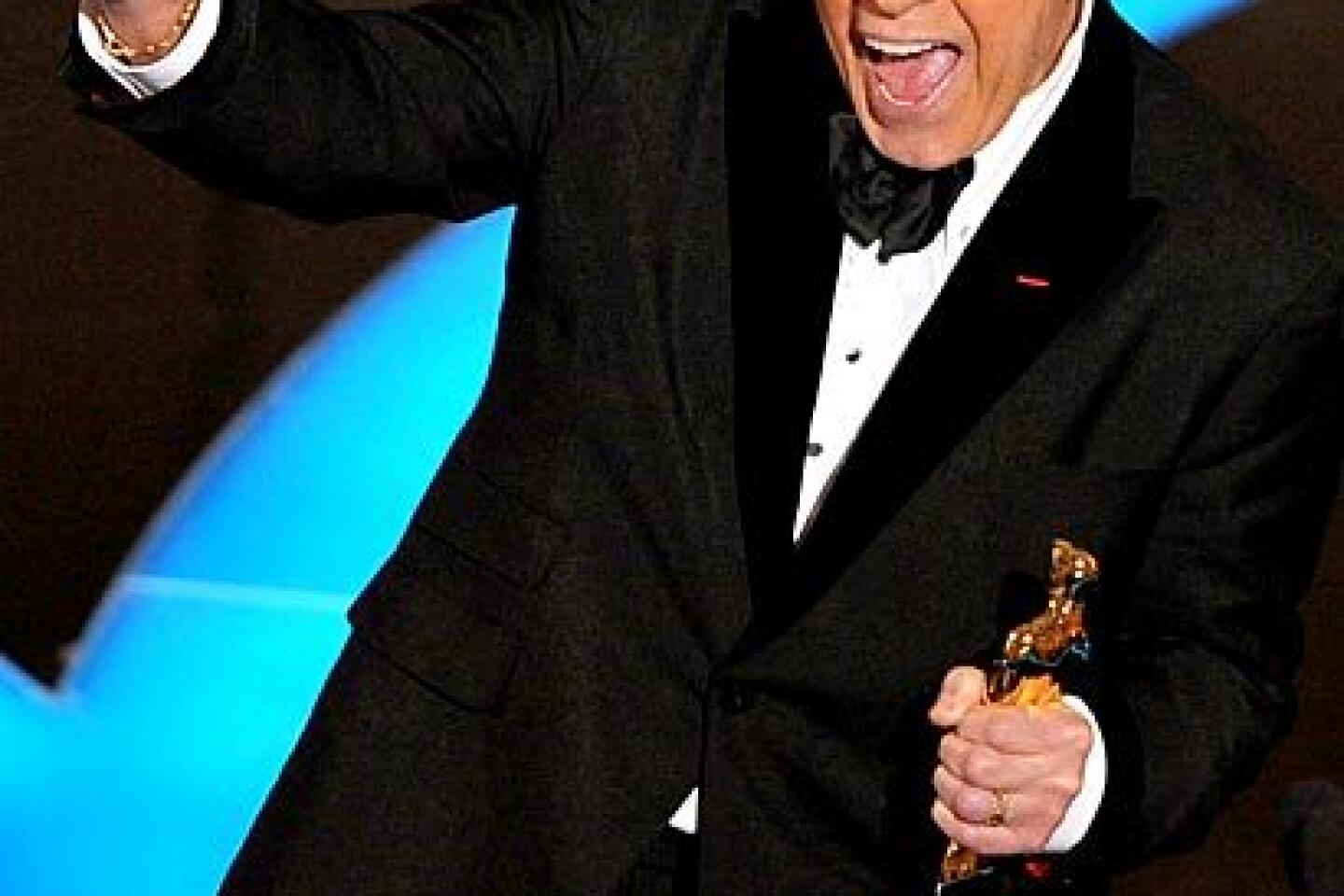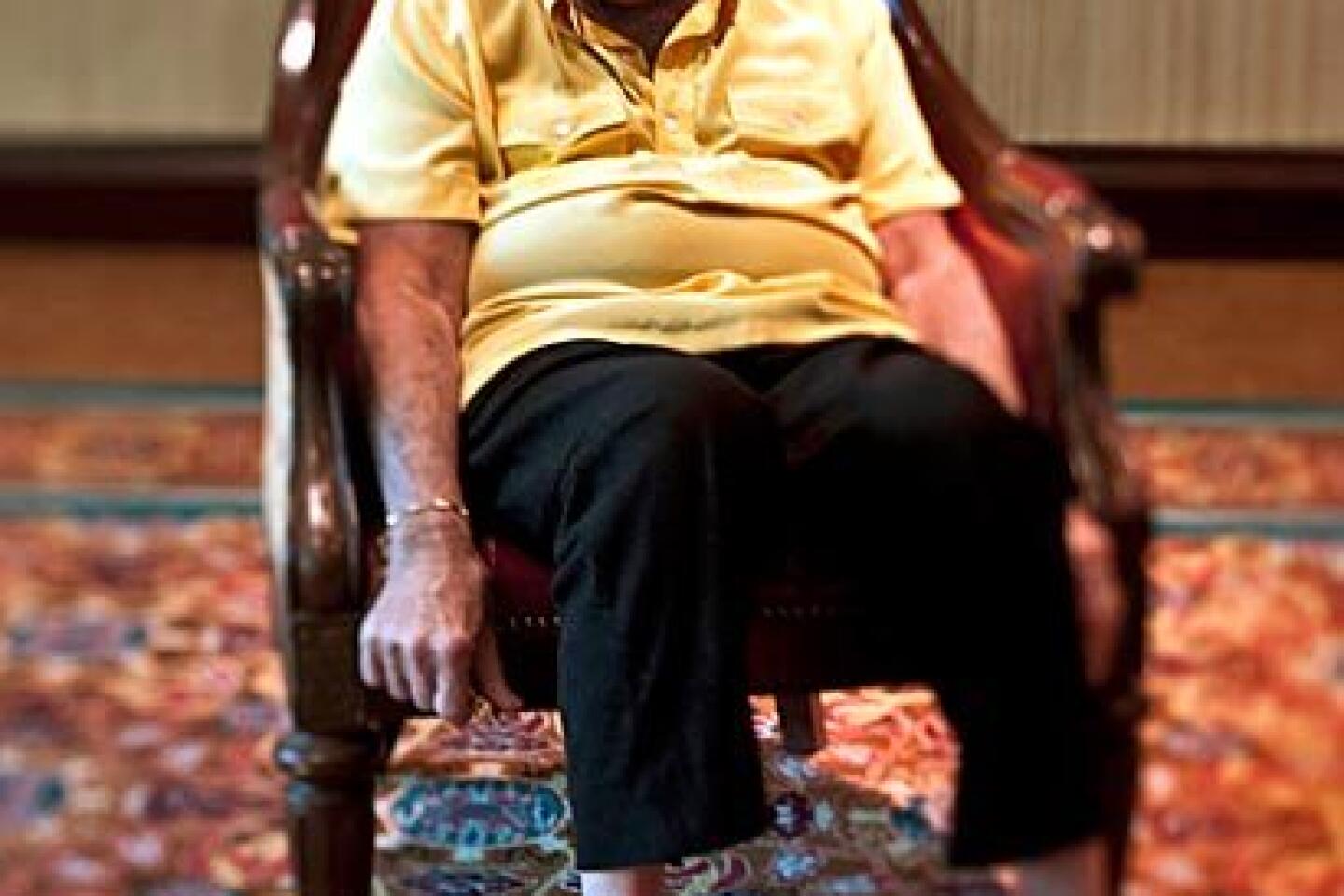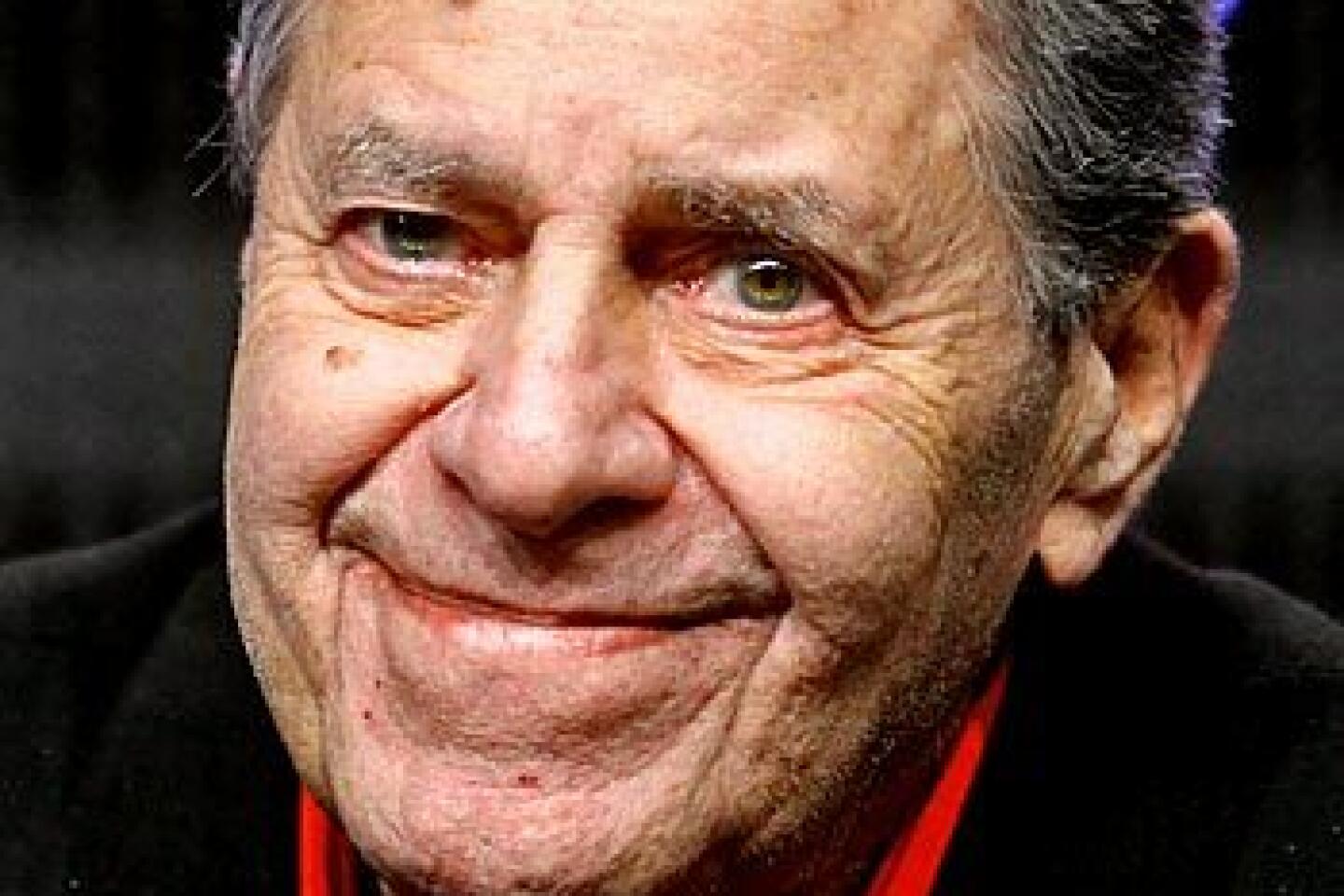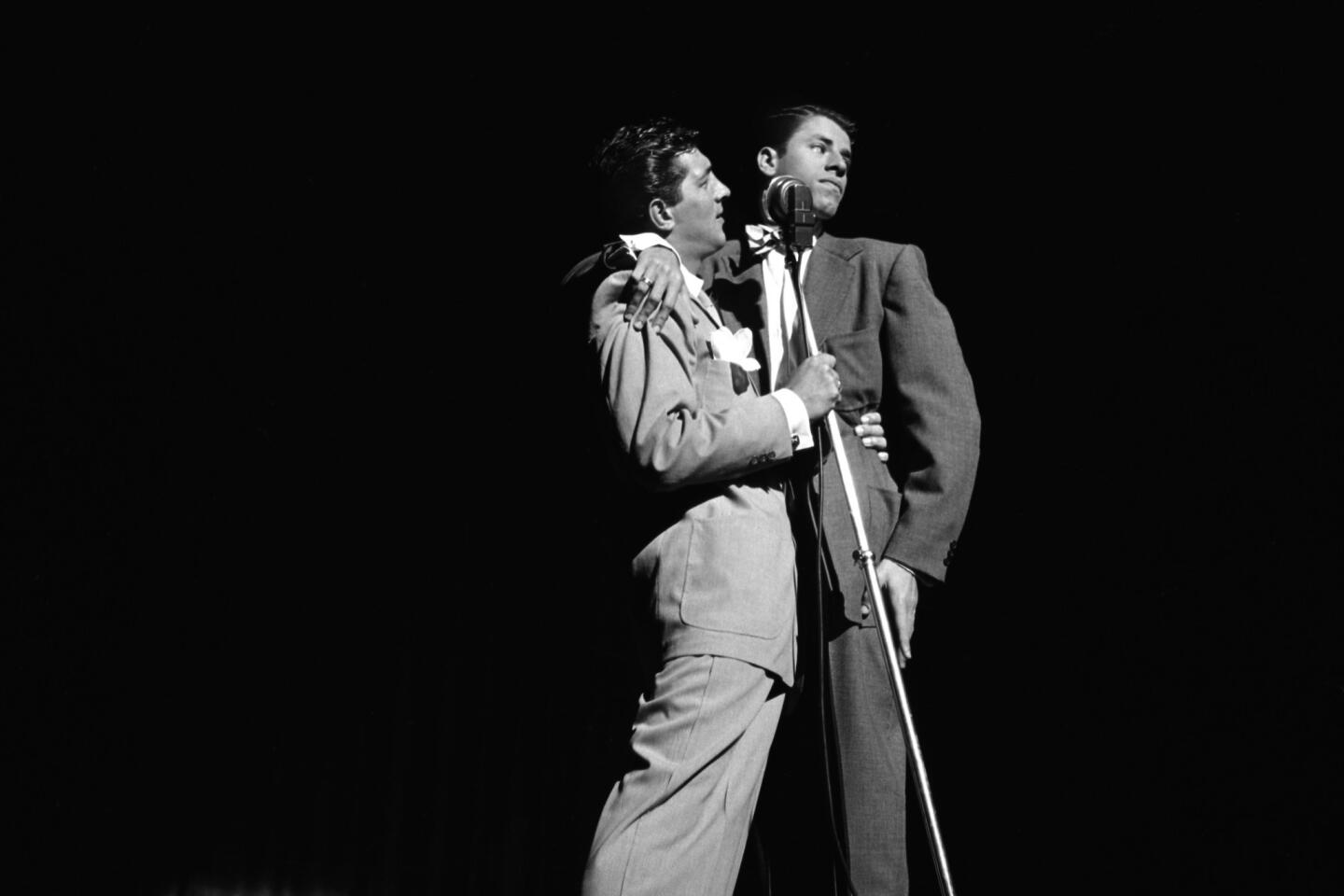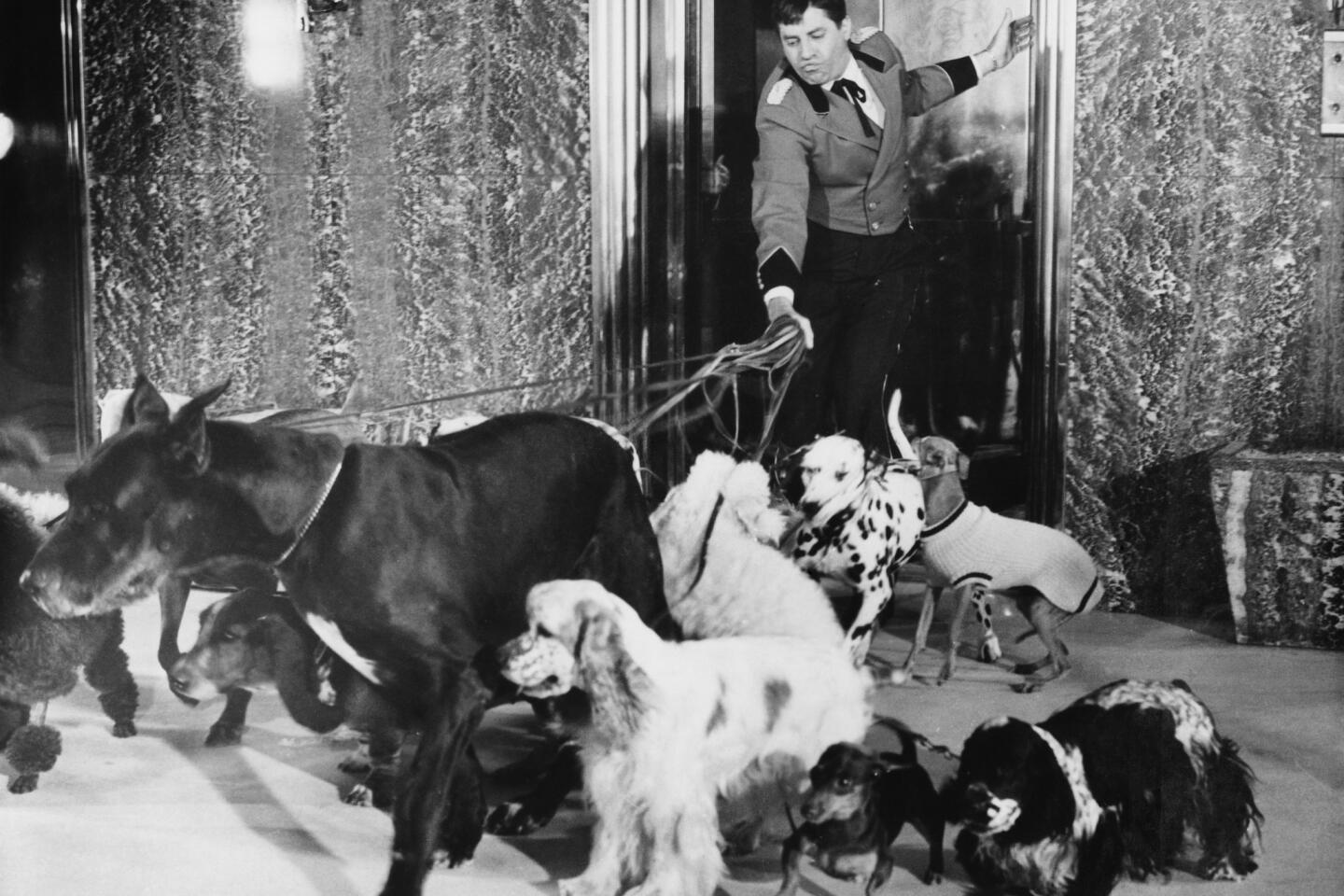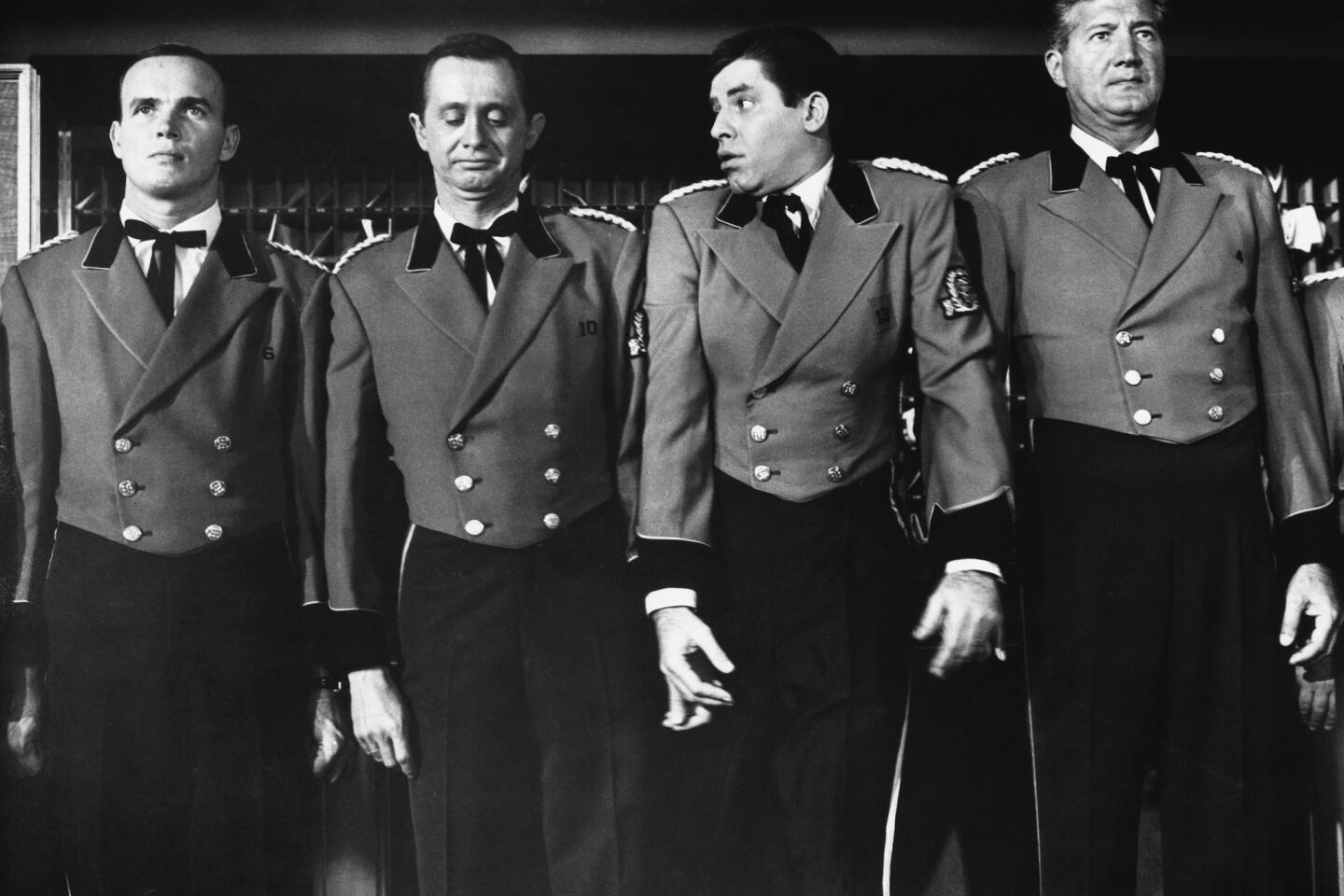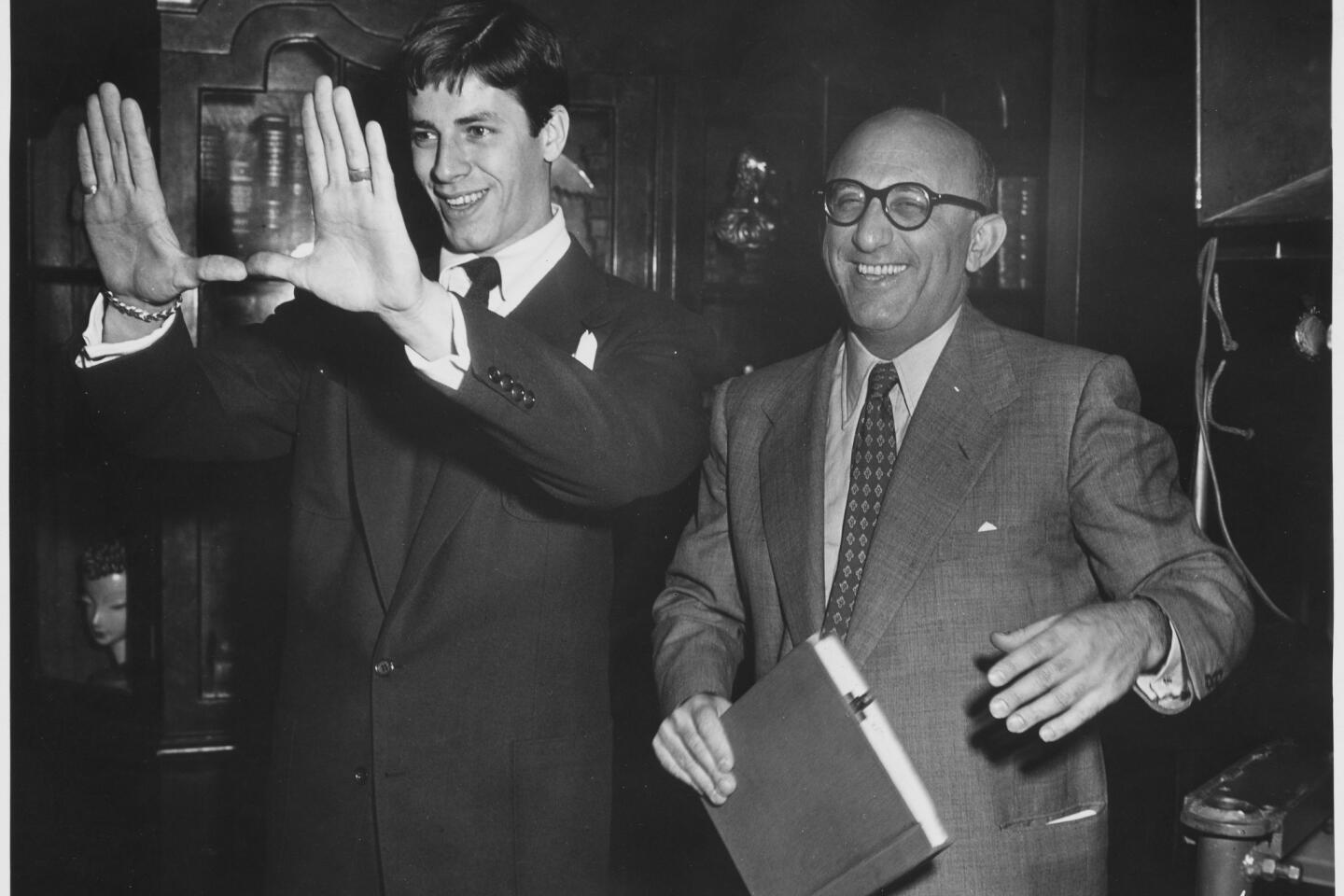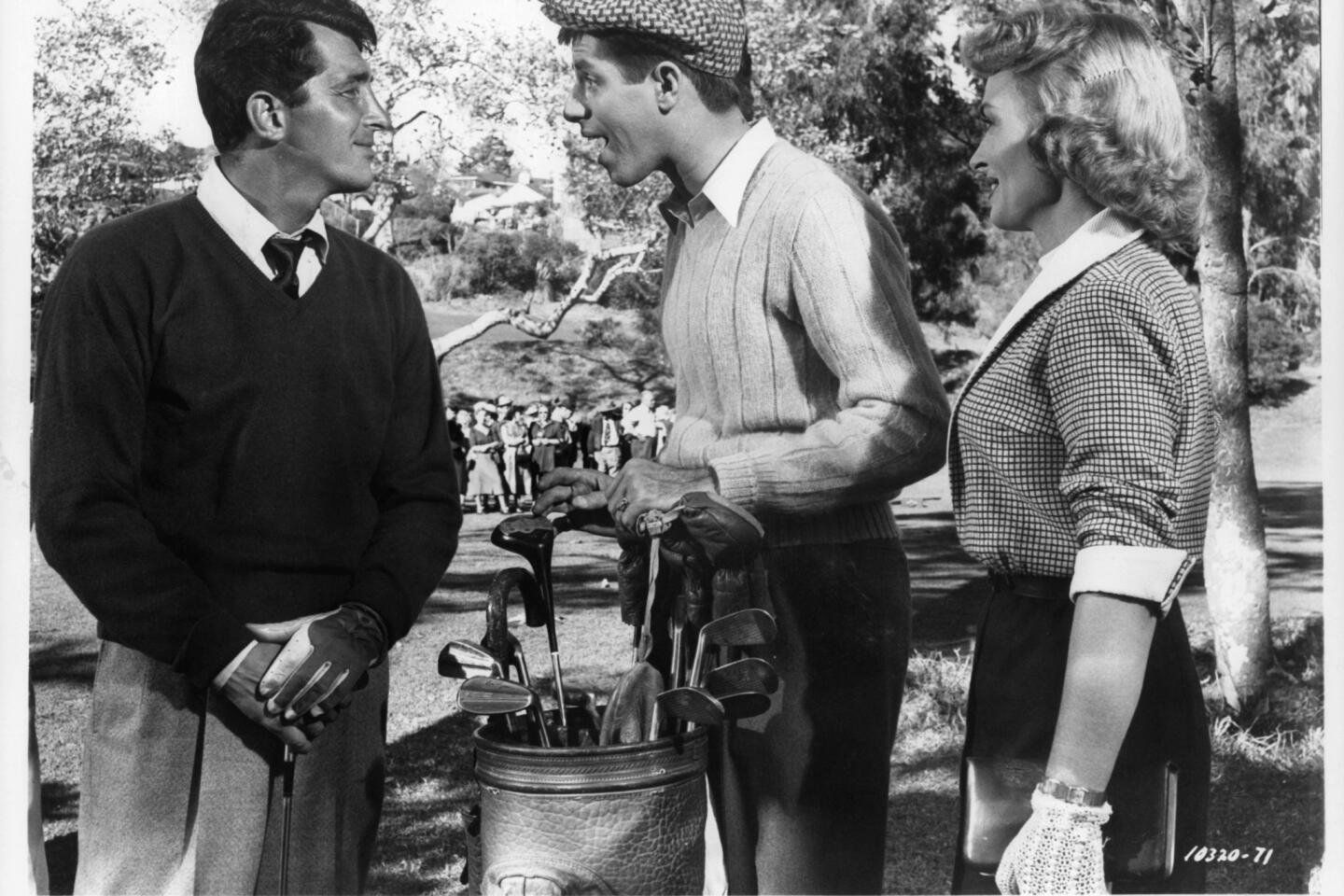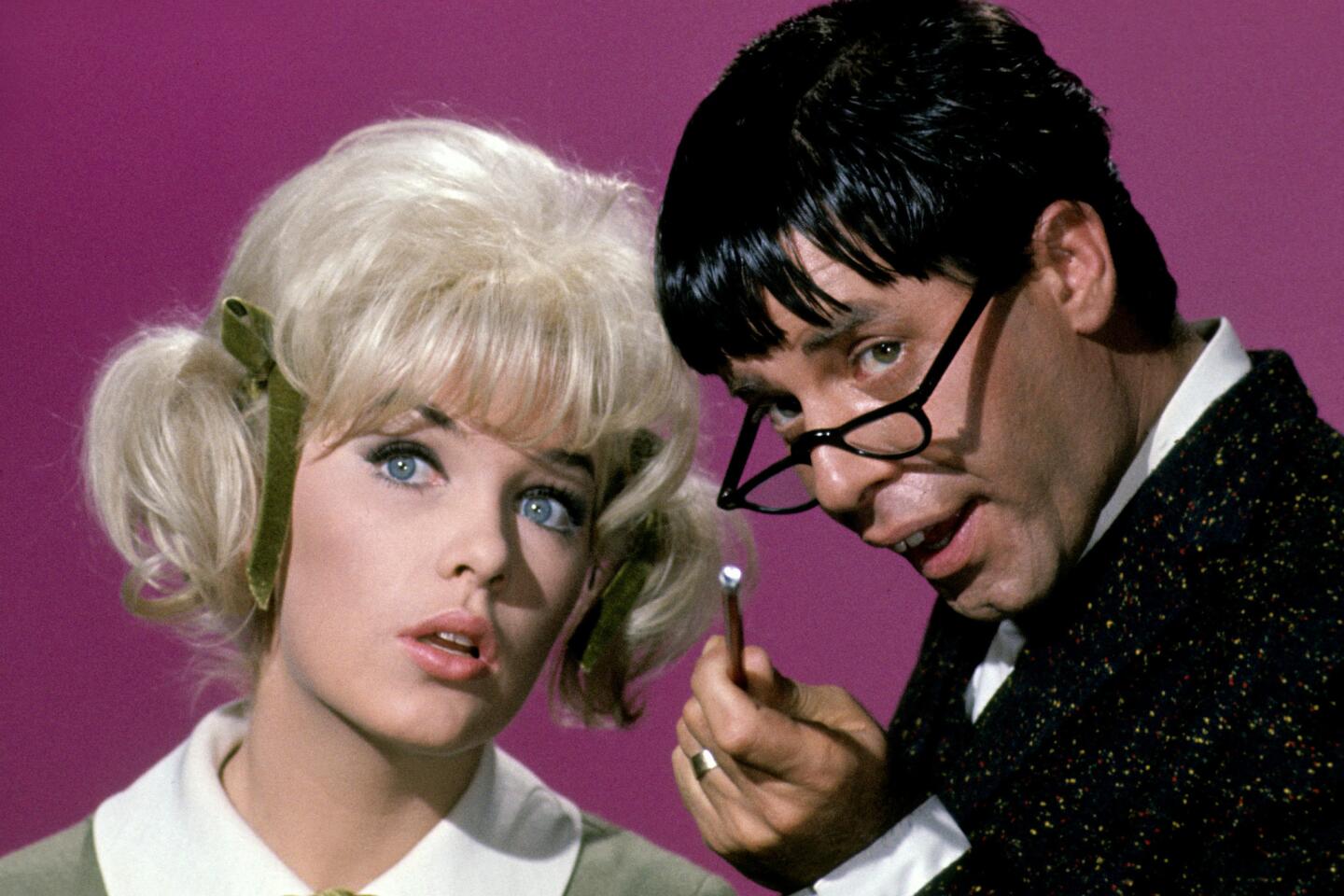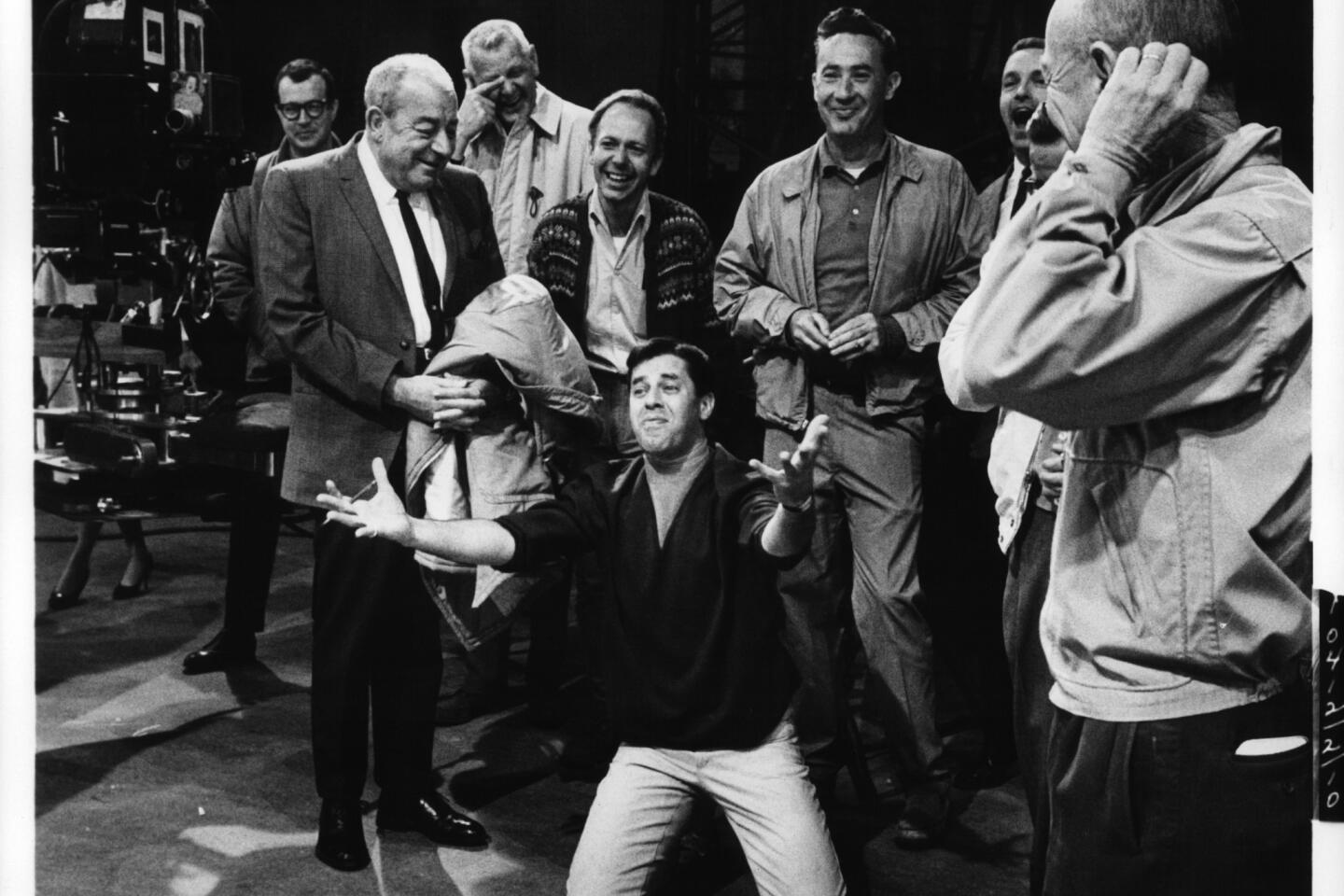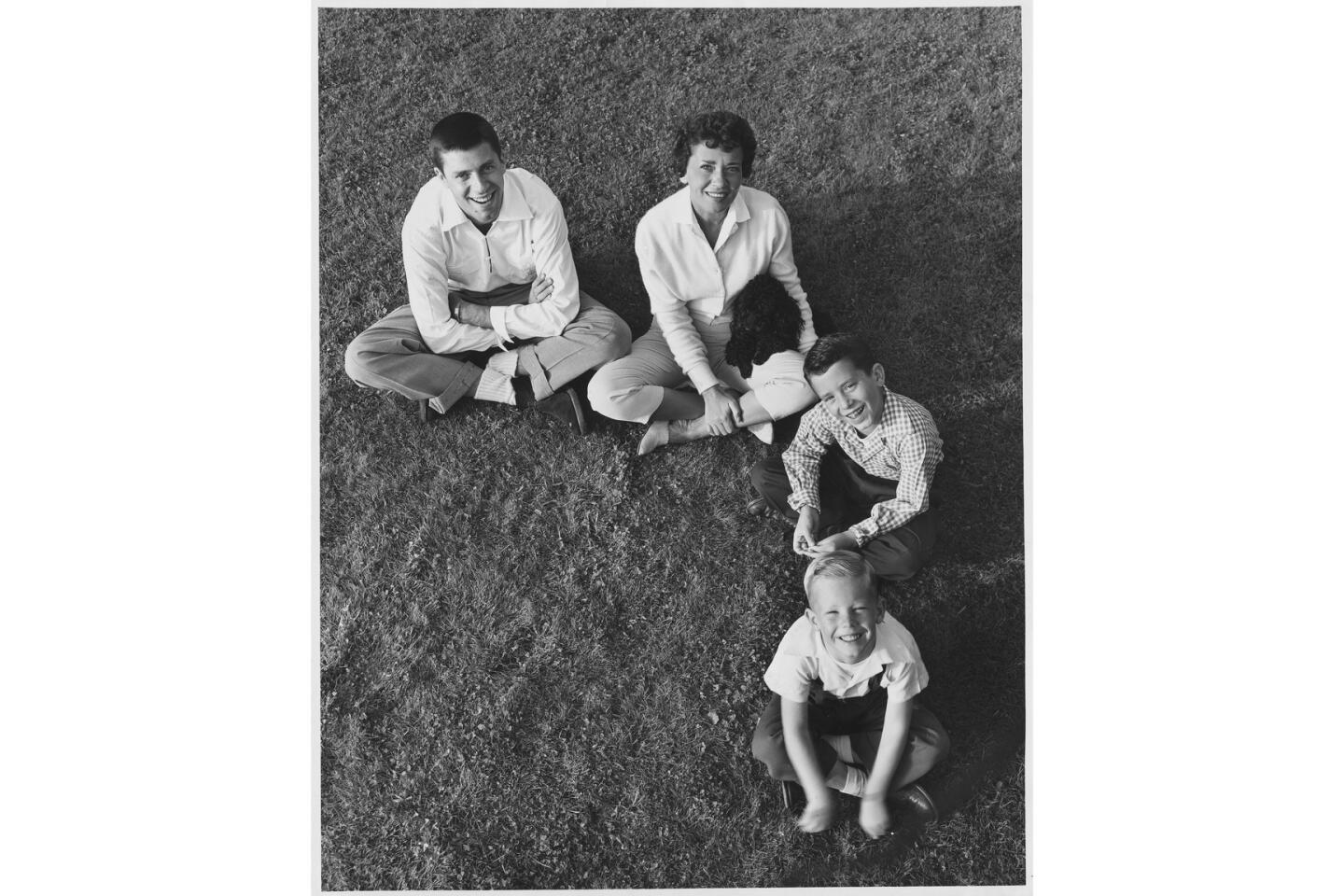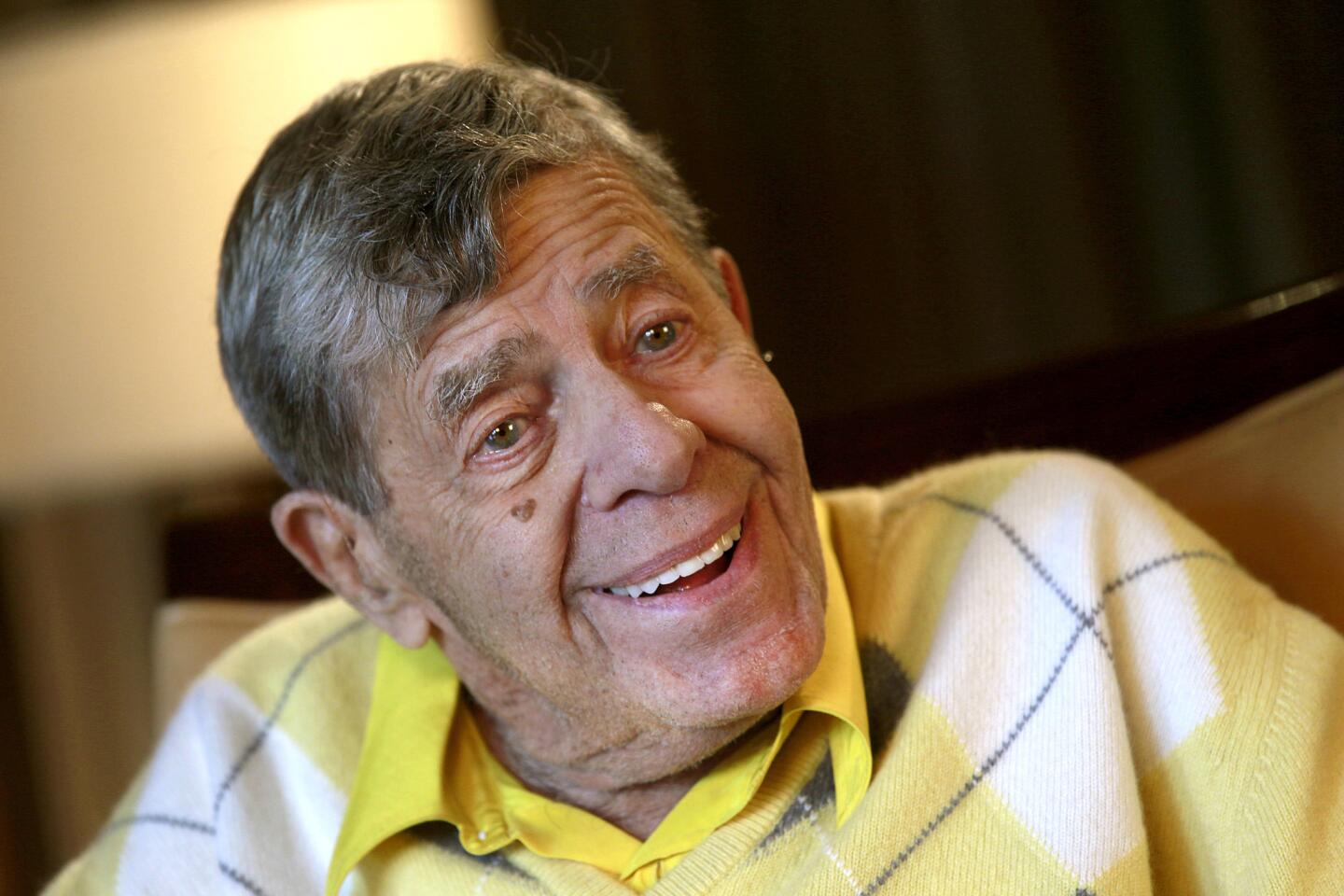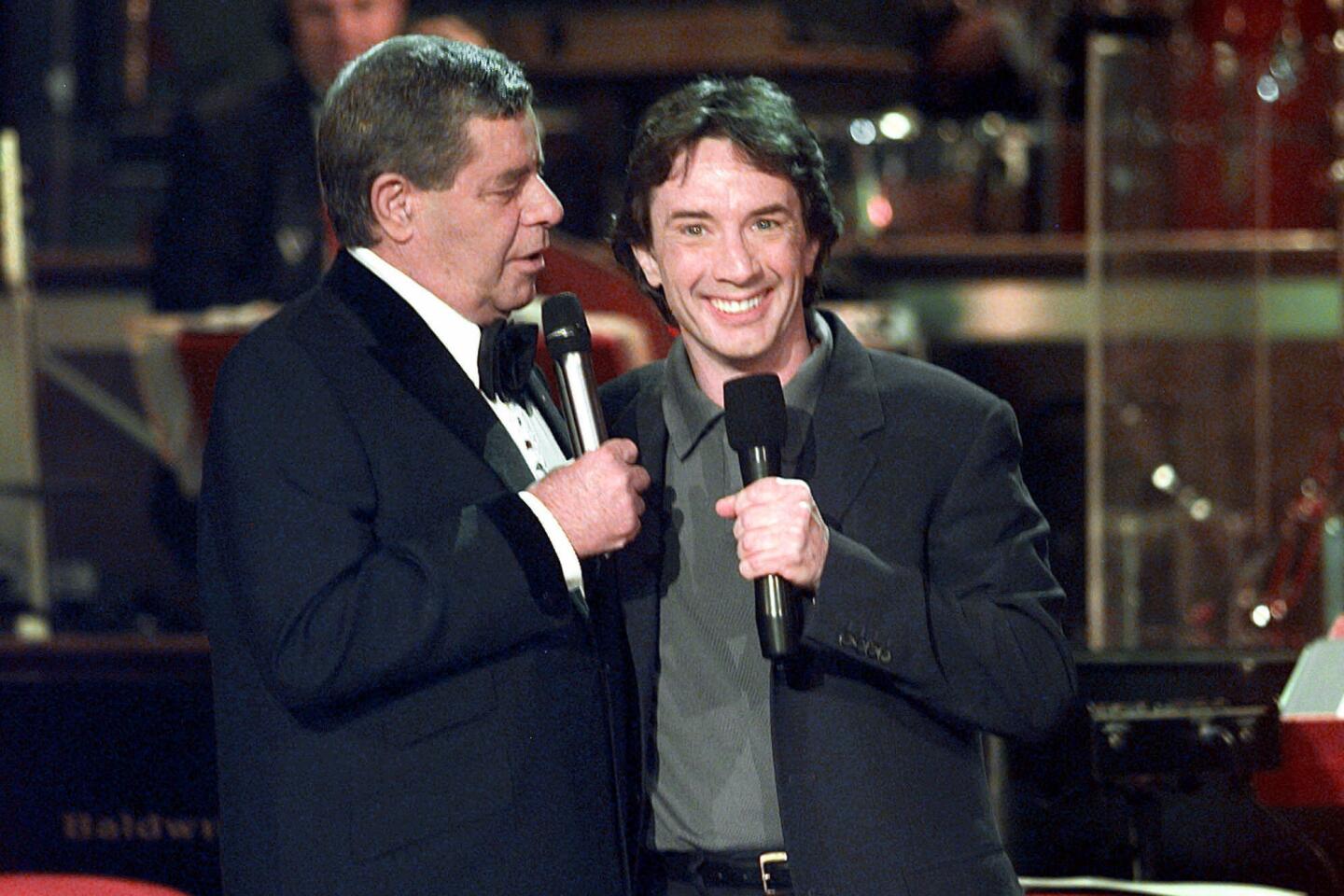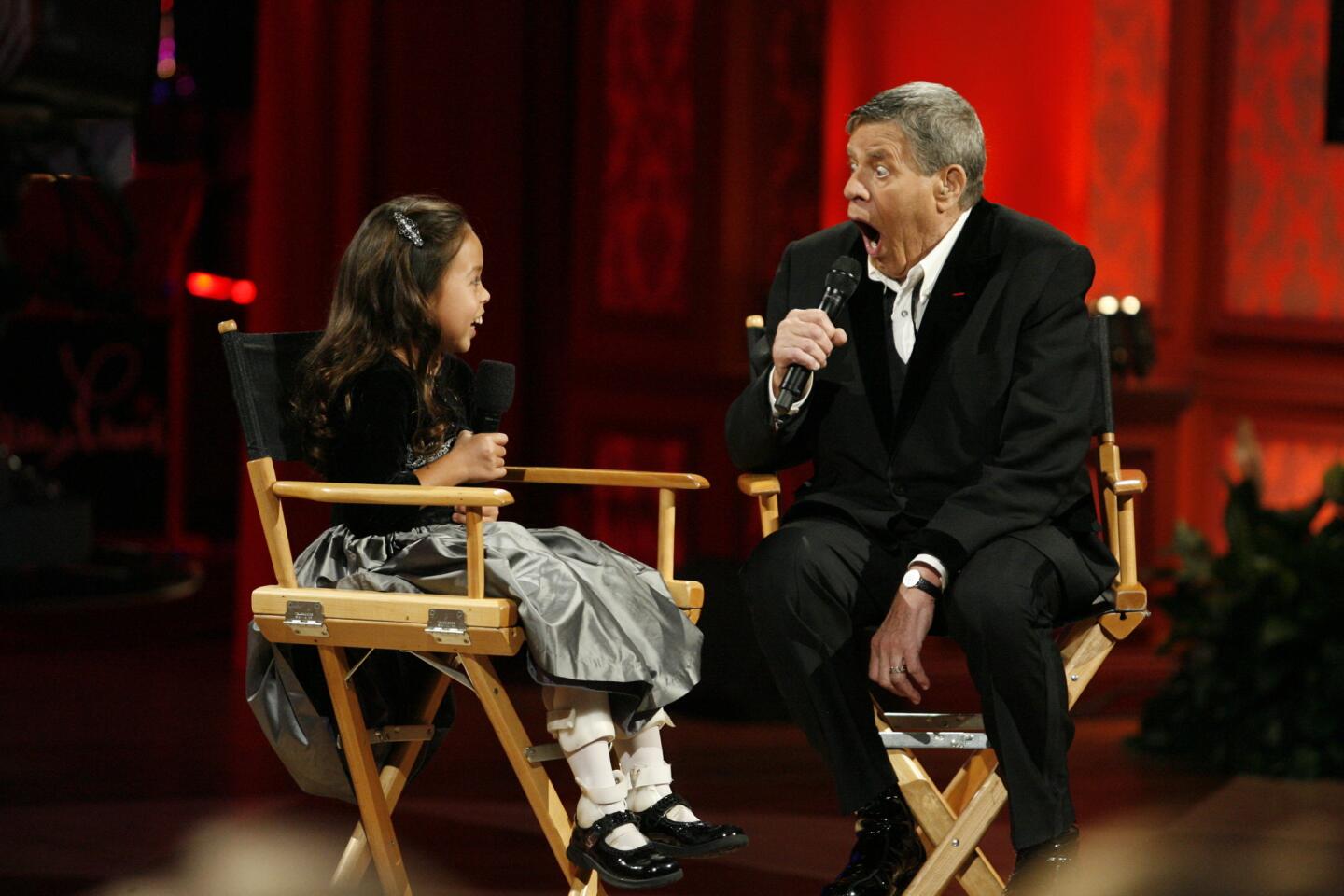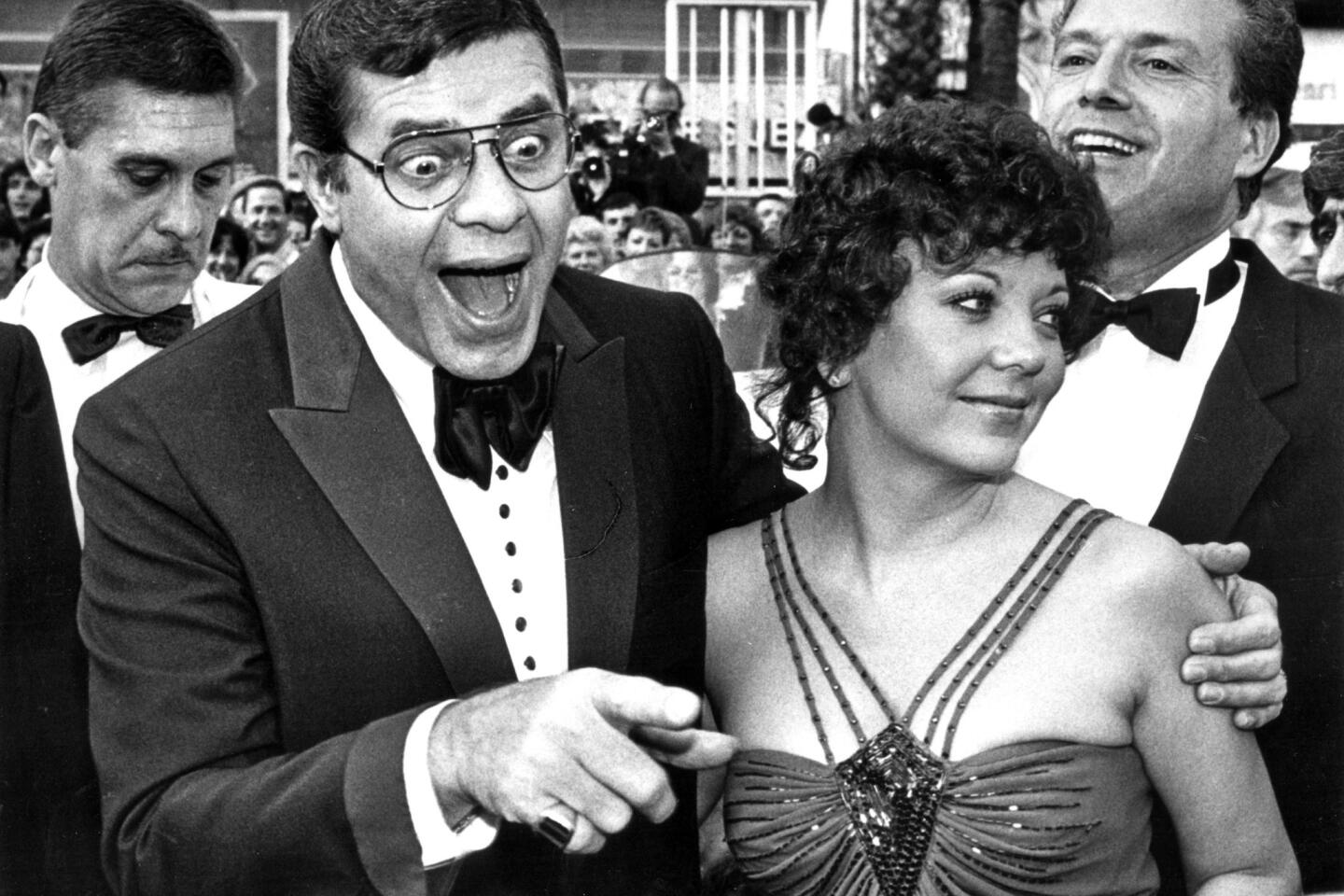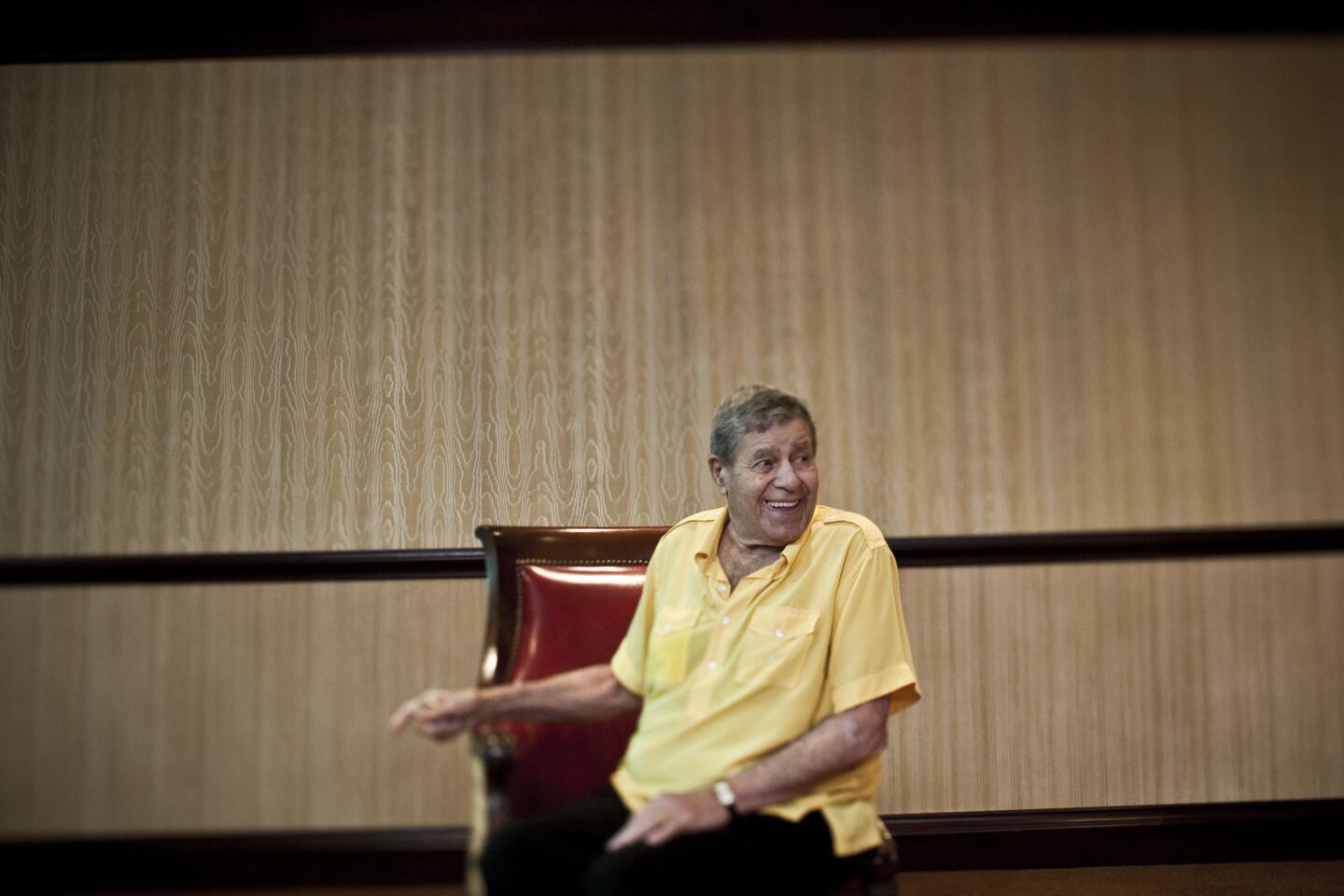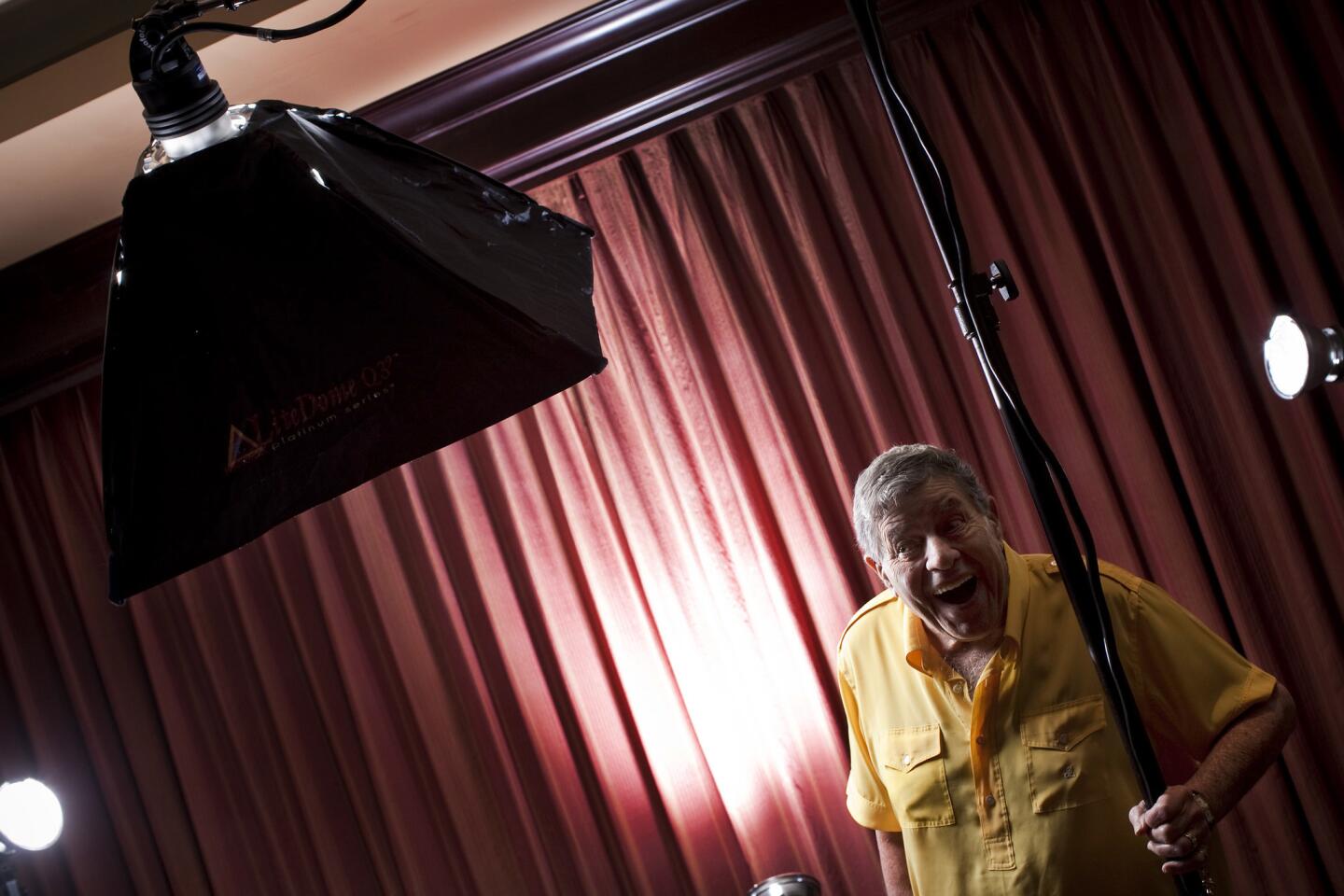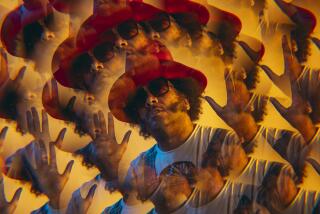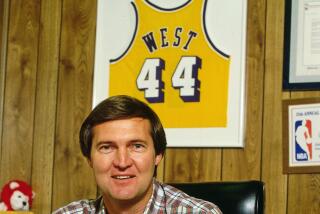From the Archives: Jerry Lewis walks alone: The ritual of the Muscular Dystrophy Labor Day Telethon
Film legend Jerry Lewis died Sunday at 91 in Las Vegas. In 2011, TV critic Robert Lloyd talked about Jerry Lewis and his dismissal as host of the Muscular Dystrophy Labor Day Telethon.
So. Jerry Lewis is out as host of the Muscular Dystrophy Labor Day Telethon, which he had captained since 1966 (though he had hosted local telethons for the charity as far back as the early 1950s). Having announced that the 2011 telethon would be his last, Lewis later called that into question; perhaps, like that other aging, raging lion, Lear, he suspected he might have been hasty in giving up the crown. The matter was then settled for him by the Muscular Dystrophy Assn. itself, which announced Wednesday, in the briefest possible statement, that his “more than half century of generous service to MDA” was done. “We will not be replacing him as MDA national chairman,” said Dr. R. Rodney Howell, chairman of the board of directors, “and he will not be appearing on the Telethon.”
There may continue to be an MDA Labor Day Telethon without Jerry Lewis, though it will contract from 21 hours to six this year and possibly continue to shrivel away, like the vestigial appendix, to a memory of its former usefulness. But there is no Jerry Lewis MDA Labor Day Telethon without him, and whatever difference that makes to the fate of “Jerry’s Kids” — no longer Jerry’s Kids, I suppose — or the number of dollars racked up on the tote board, that one very special tradition ends here. The charity may be no less worthy, but the television event is over. There is really no reason to watch it now.
Some might say that was already becoming the case. There was a time, when Lewis was younger and his associates were hale — many, of course, lacking his superheroic constitution, have predeceased him to that great Friar’s Club in the sky — that the telethon was a lively, star-studded event, worth staying awake for almost through its entirety. It was unpredictable, in a good way; it had currency. More lately, it can seem a little shopworn or second-string, emerging as if out of a time capsule, or like the mythical, musical city of Brigadoon, reappearing whole once a year, but here showing its years.
So it is with Lewis, who, like most of us, remains a creature of his own youth into the youth of a different world. (In more than one interview over the last decade he has suggested that one problem with showbiz kids these days is that they don’t know who Al Jolson is.) His timing, in a kind of existential sense, is off. His jokes, which, in the habit of his generation, flirt with racial and gender stereotypes — or I should say, flirt with them in a way in which no irony is apparent — have created little hiccups of controversy in recent years. The show became unpredictable, in a less good way. And yet it was no less fascinating. The man, like the artist, represents an inextricable mix of sentiment and steeliness, and part of the fascination of the telethon has been watching him rocket between those poles, like the divided self he played in his masterpiece “The Nutty Professor” — the sweet scientist, with his thick glasses and sideways teeth, and the soulless swinger, with his slicked hair and sharp tux.
But that is only part of the story. Because if the telethon was on the one hand a very long variety show, it was also something greater: a kind of ritual, a rite of sacrifice, an altar across which Lewis splayed himself in order that the coffers would be filled and a cure found. If there was something almost unseemly in the intensity of his identification with his cause, an identification that may have ultimately discomfited the organization for which he worked for so long as “a labor of love,” there was also something wonderful about it. He played the telethon like a Yiddish-theater Las Vegas remake of the climax of “Mr. Smith Goes to Washington,” where James Stewart holds the Senate floor, flooding it with truth and beauty, until he collapses — but with funny walks and noises and faces. For many years, Lewis was onstage for the whole 21 hours: Going the distance was part of the point; it was what the gods required.
See the most-read stories in Entertainment this hour >> »
ALSO:
Jerry Lewis, legendary comedian, has died at 91
From the Archives: Here’s what happens when Jerry Lewis isn’t so hostile in an interview
From the Archives: In the kingdom of the clown: Jerry Lewis remasters his life’s work
Hey laaaaady! Jerry Lewis’ personal archive is acquired by the Library of Congress
More to Read
The complete guide to home viewing
Get Screen Gab for everything about the TV shows and streaming movies everyone’s talking about.
You may occasionally receive promotional content from the Los Angeles Times.
